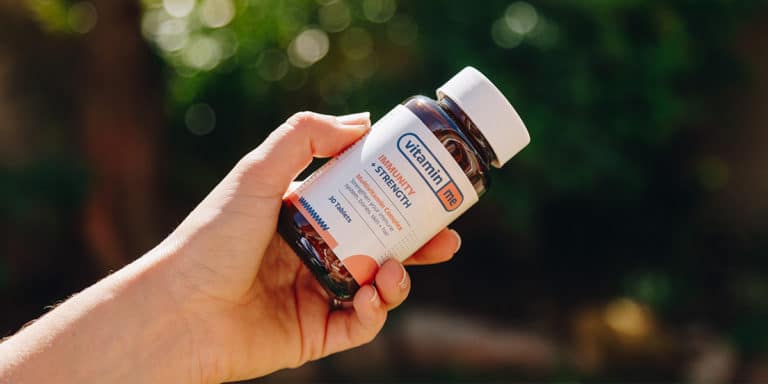So you started taking your Immunity + Strength vitamins and may have noticed that your urine is now bright yellow. And yes, whilst it can be exciting for some and possibly alarming for others, we can assure you that there is absolutely nothing to worry about! This change in colour is completely harmless and normal when taking a B-complex vitamin, which is housed within the VitaminMe multivitamin. A B-complex is made up of various B vitamins, one of them being vitamin B2, which is also known as Riboflavin. The name ‘flavin’ originates from the Latin word ‘flavus’ which means yellow.
We think you’re starting to see where we’re going with this…
B vitamins are water-soluble, which means that they can dissolve in water. It is important to take water-soluble vitamins daily since they cannot be stored in the body for later use. Throughout the day your body will excrete an excess of the vitamins which do not get absorbed, which may result in bright yellow urine. This change in colour of your urine is harmless and should not stop you from taking your multivitamin. In fact, due to the change in colour you can rest easy knowing that you are consuming a sufficient amount of these all-important B vitamins!
But if I’m urinating out excess B vitamins, do I really need to take them?
Just because you’re excreting surplus B vitamins, it doesn’t mean that you’re “losing” crucial nutrients. Instead, it indicates that your body is absorbing and utilising the B vitamins it needs and flushing out the excess. So even if your urine has turned yellow, do not skip your B vitamins, as these are important in maintaining overall health.
So what exactly do B vitamins do?
B vitamins help the body convert food into fuel (energy), create new blood cells, regulate nerve function, aid in digestion and maintain healthy skin cells, brain cells, and other body tissues. There are eight types of B vitamins, each with their own function. Whilst B vitamins are found naturally in foods such as eggs, whole grains and meat, some people may struggle to reach the recommended daily intake of each B vitamin, especially if they do not eat animal products.
Since B vitamins play a role in many of the body’s processes, a deficiency could lead to lethargy, brain fog and irritability in the short-term with more serious complications in the long-term.
If you have any further questions regarding this issue or simply want to discuss a nutrition-related query, please book a 20-minute complimentary online or face-to-face consultation with our in-house registered dietitian by clicking here.


